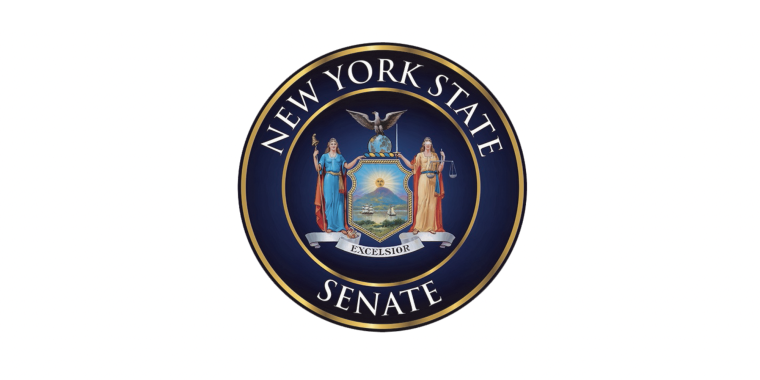
Behind Rapid Deal on Taxes, Stealth Maneuvering by Cuomo
By THOMAS KAPLAN
ALBANY — Gov. Andrew M. Cuomo first notified the public that he wanted to revise New York’s income tax Sunday afternoon, with e-mail sent to the state’s newspapers, offering them an essay in which he mentioned “comprehensive reform of our tax code.”
Just two days later, the governor announced that he and legislative leaders had agreed on an overhaul of the income tax; that day, he summoned lawmakers back to Albany, and the next day, Wednesday, he invited them to a party before they had seen the measure or voted on it.
The remarkably rapid progress of the tax revisions — without a single public hearing or town-hall-style meeting — provided the most striking illustration to date of Mr. Cuomo’s policymaking strategy: information is tightly controlled, negotiations are carried out behind closed doors and the debate is limited to just a few people.
The tactics, derided by government watchdog groups and some lawmakers, have proved highly effective during Mr. Cuomo’s first year in office, as he has pushed, against long odds, to win passage of same-sex marriage, a property tax cap, a reworking of ethics rules and extensive budget cuts. And his efforts were rewarded again this week: The Senate voted, 55 to 0, to approve the tax code changes on Wednesday night, and the Assembly voted 132 to 8 in favor of the measure early Thursday morning.
“If you admire pure power politics and accomplishing things, which is what a leader does, you have to give the guy credit for the way he pulls these things off,” said David Grandeau, a former director of the state lobbying commission who now blogs about ethics in Albany.
“You can argue that it’s not good for democracy when we have things done this way,” he added, “but if you really want to be honest with yourself, the greatest form of government to accomplish things is a dictatorship. Democracy is a pain.”
The tax agreement came about so abruptly that some lawmakers had to scramble to get to Albany — or, out of protest, refused to. Several legislators had been on a trip to Israel sponsored by the Anti-Defamation League; at least one had been in Puerto Rico for a conference of public employee unions. And one lawmaker, Assemblyman Joel M. Miller, a Republican from Poughkeepsie, frustrated with having no say on the deal, decided to stay in Florida on vacation.
But those in Albany did not fare much better. At a pub near the Capitol on Tuesday night, a Republican state senator asked a reporter for details about the business tax credits that would be provided by the tax package. “We don’t know anything,” he said
“I think it’s as bad as you can get in terms of reneging on a promise to be more open, more transparent,” said Assemblyman James N. Tedisco, a Republican from Schenectady. “Pretty soon they’ll just say, ‘Stay home, and just send in your votes when we bring the bills out.’ ”
Until lawmakers started voting on the measure, the governor did not hold a news conference to field questions about it. Instead, he offered two op-ed articles to newspapers (almost all of which declined to publish them), released a statement summarizing his proposal and posted a video explaining his rationale for the changes on his Web site.
Mr. Cuomo has throughout the year defended his governing practices, arguing that state government is now functioning far more smoothly and productively than in recent years. After eliminating public meetings between the governor and legislative leaders, he called the practice a “silly, rehearsed staged show” and insisted that Albany’s methods should bear results.
In an interview on Wednesday, Mr. Cuomo said that the current tax issue had been fully aired before the legislation was unveiled. His bill creates a higher tax bracket for the highest-income residents while reducing the tax rate for millions of middle-class residents, and it allows the state's so-called millionaires' tax to expire as scheduled at the end of this month.
“If you have not heard discussion on the millionaires’ tax, you have been living under a rock for the past three years,” he said. “This is probably the most discussed and debated topic that this government has dealt with in 30 years.”
He added: “We didn’t do this in three days. It took us three years to do this. And government very often acts when it must act, because we’re a couple of weeks from a deadline, because the tax expires.”
Mr. Cuomo’s approach to overhauling the income tax in New York contrasts markedly with that of his counterpart in Connecticut, Gov. Dannel P. Malloy, a fellow Democrat.
Mr. Malloy proposed higher tax brackets this year. He proceeded to collect input from the public on his proposed changes at more than a dozen town-hall-style meetings — then tweaked the brackets he was proposing.
“The governor found the feedback enormously helpful,” said Roy Occhiogrosso, a senior adviser to Mr. Malloy. “To hear from literally hundreds of people, night after night, standing up and telling you how this is going to impact them — he found that to be an invaluable experience.”
Of course, power has long been concentrated in Albany — a phenomenon often characterized by the phrase “three men in a room,” referring to the governor, the Assembly speaker and the Senate majority leader.
“There’s a general sense that any time you do a deal in Albany, sunlight will put the deal at risk — somebody will have a change of heart, somebody will insert themselves and scream no,” said State Senator Liz Krueger, a Manhattan Democrat.
Mr. Cuomo, who vowed during his campaign that his administration would be the most transparent in the state’s history, has concentrated power even further.
He has been secretive about his daily whereabouts: the daily schedule he releases to the news media often contains not a single event, but simply the name of the county — or, occasionally, just the state — he expects to be in.
On several occasions, his office has alerted the news media to appearances by the governor just hours, or even minutes, before they were to begin. He agreed to post his past schedules online, but the schedules are months old.
The tactics he has employed to win passage of his agenda have attracted increasing criticism in recent weeks. Last month, a state judge considering a challenge to the same-sex marriage law accused Mr. Cuomo of “arm-twisting” as he described how the governor allowed the Legislature to waive its usual requirement for a three-day waiting period between the time a bill is introduced and the time it is voted on. The waiting period is supposed to allow lawmakers, and the public, time to review the language of proposed legislation.
The waiting period was also waived for the tax overhaul. The New York Public Interest Research Group said that the actual legislation — at 33 pages and over 19,000 words — was posted online 26 minutes before the Senate began voting on it.


